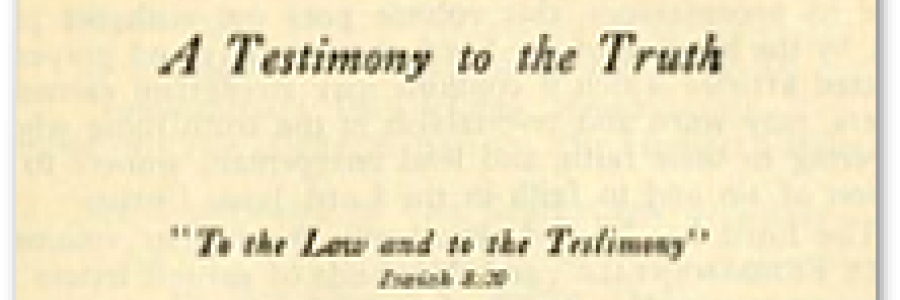Millennial Dawn: A Counterfeit of Christianity
CHAPTER VIII MILLENNIAL DAWN A COUNTERFEIT OF CHRISTIANITY
BY PROFESSOR WILLIAM G. MOOREHEAD, D. D., UNITED PRESBYTERIAN THEOLOGICAL SEMINARY, XENIA, OHIO
Six rather bulky volumes, comprising in all some 2,000 pages, are published by the “Watch Tower and Tract Society” of Brooklyn, N. Y. The author of this work is Mr. Charles T. Russell. Formerly his publications issued from “Zion’s Watch Tower”, Pittsburgh, Pa. They then bore the somewhat ostentatious title, “Millennial Dawn,” (1886). The volumes now bear the more modest inscription, “Studies in the Scriptures”, (1911). Why the change in the title is made can only be conjectured. Some rather severe criticism and strictures of the views advocated in these books have brought Millennial Dawn into disrepute in the minds of many people, and accordingly we think the former title has been dropped and the later and less objectional one substituted for it. Some color is given to this conjecture by the fact that certain evangelical terms are applied to the movement of which Mr. Russell is the head, as, e. g., “People’s Pulpit of Brooklyn”, “International Bible Students’ League”, “Brooklyn Tabernacle”, “Bible House and Tract Society”, (Our Hope, Feb., 1911). The later title and the various names now freely used tend to allay suspicion and to commend the propaganda of Mr. Russell and his followers to the Christian public.






Discussion